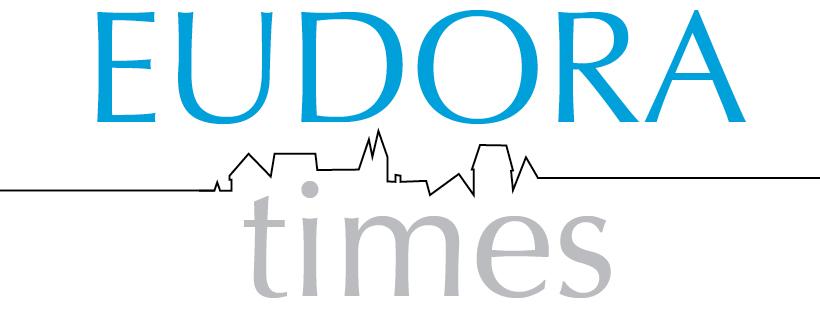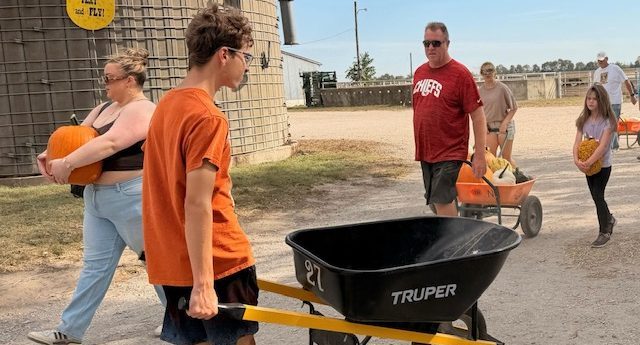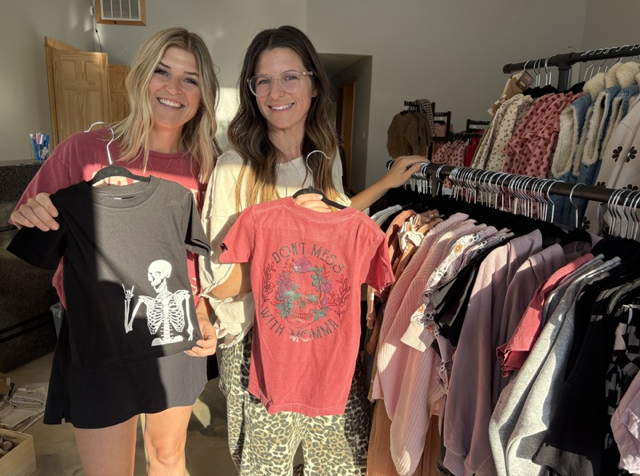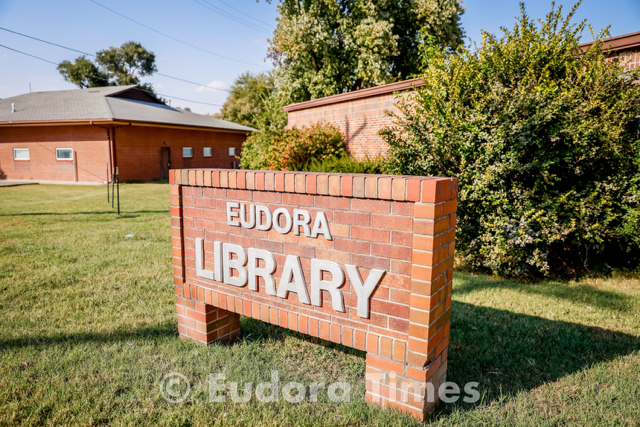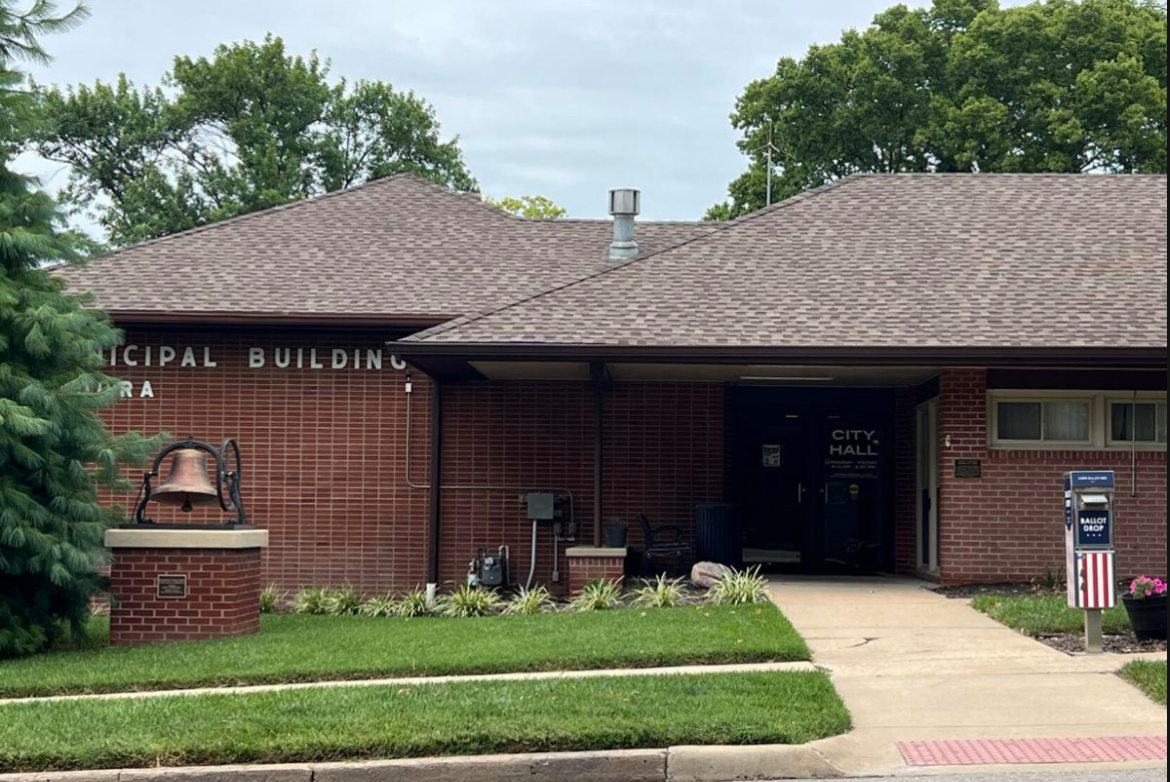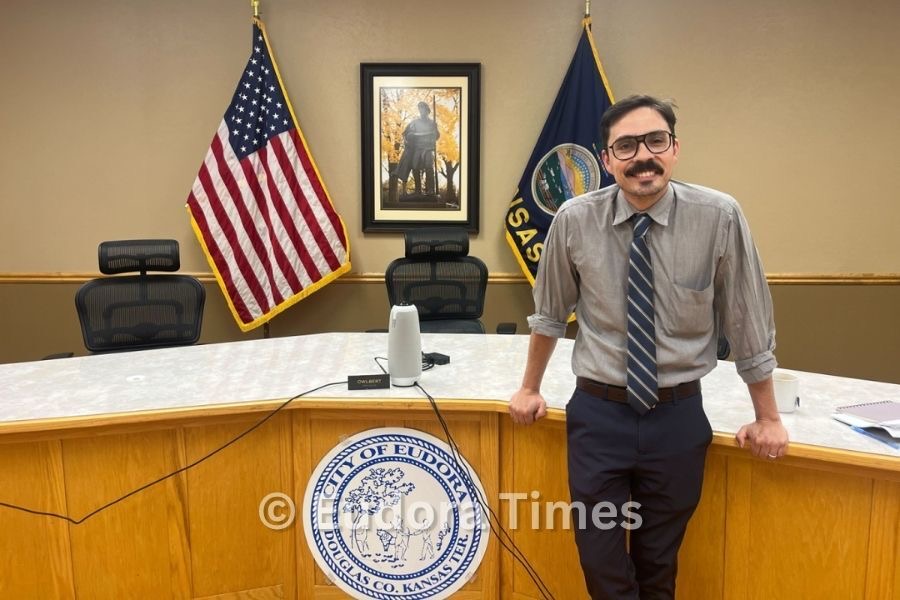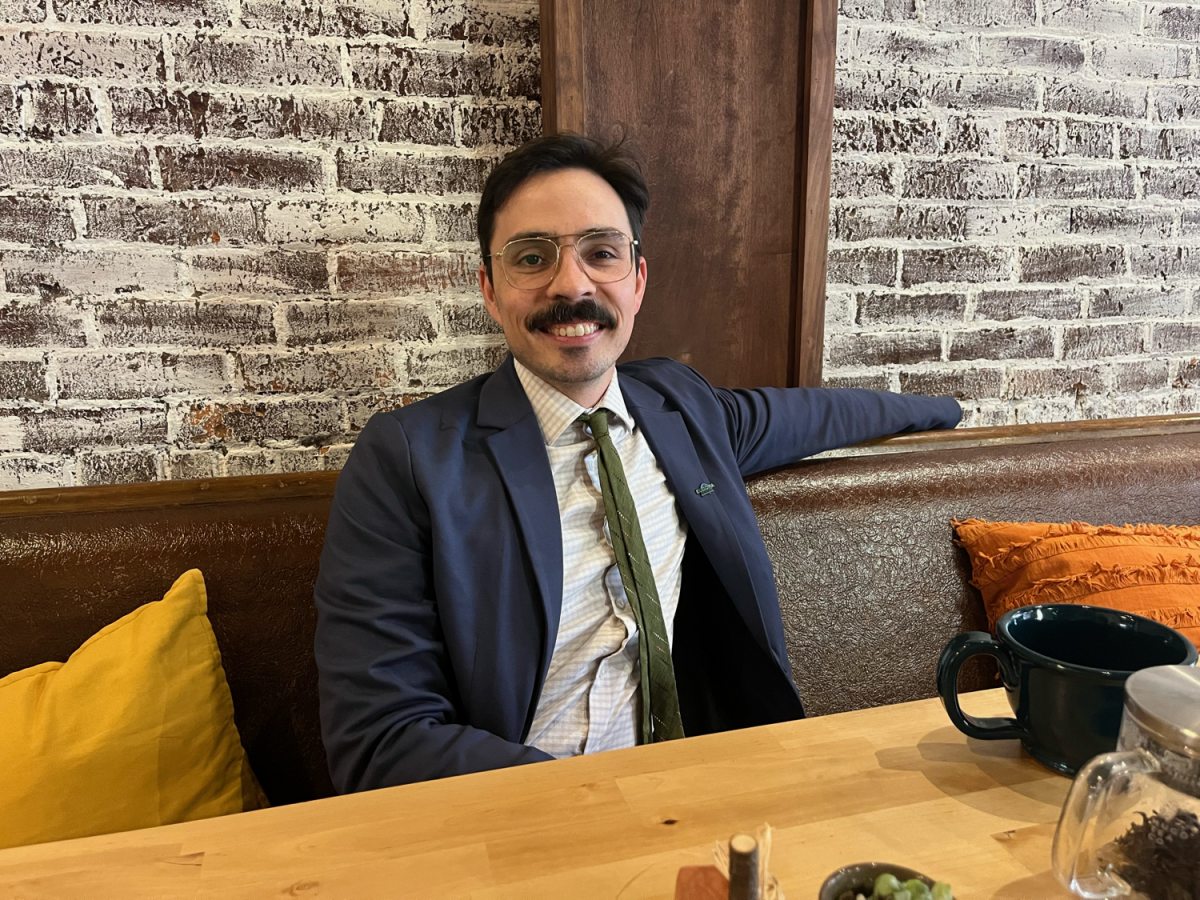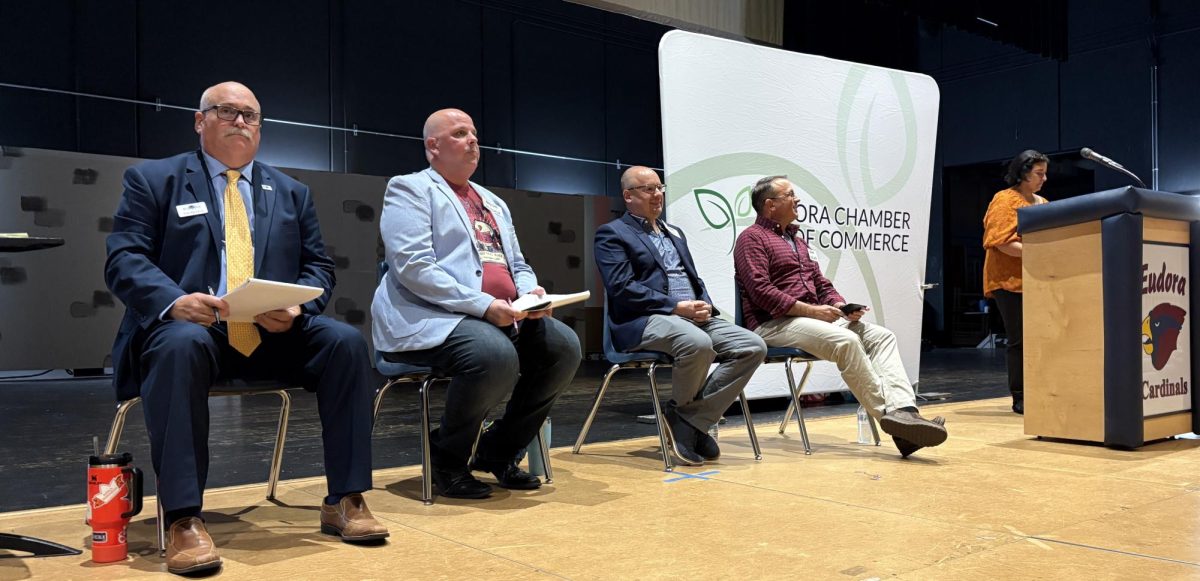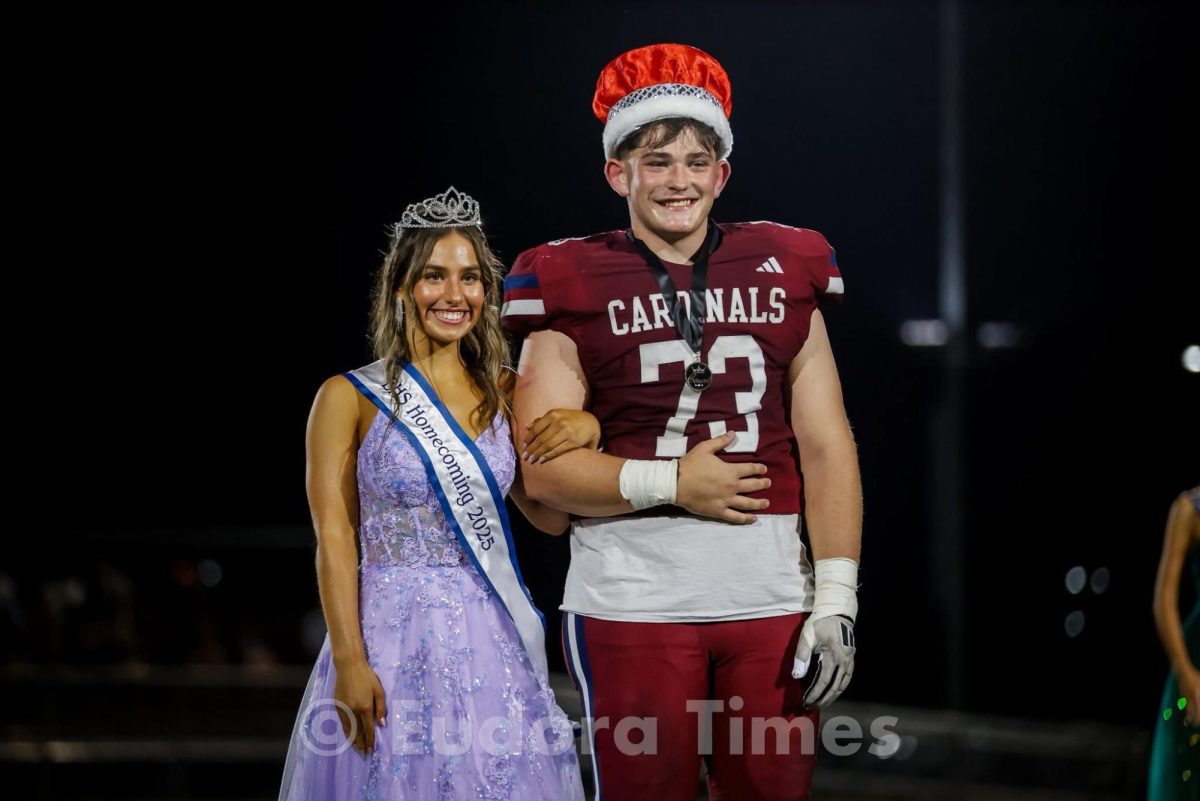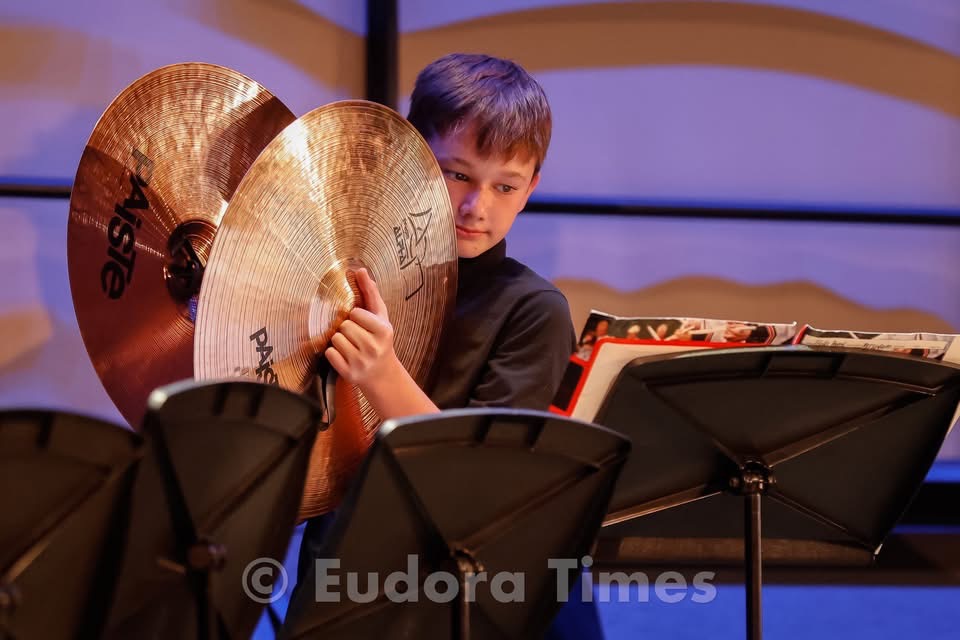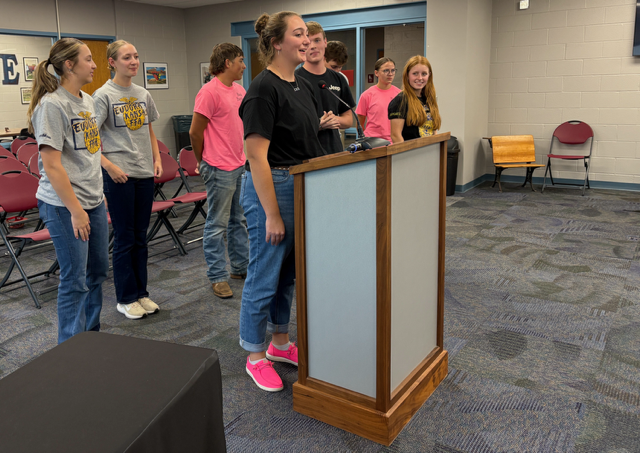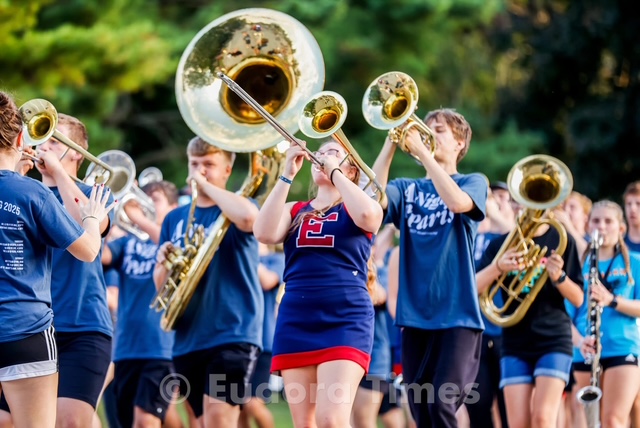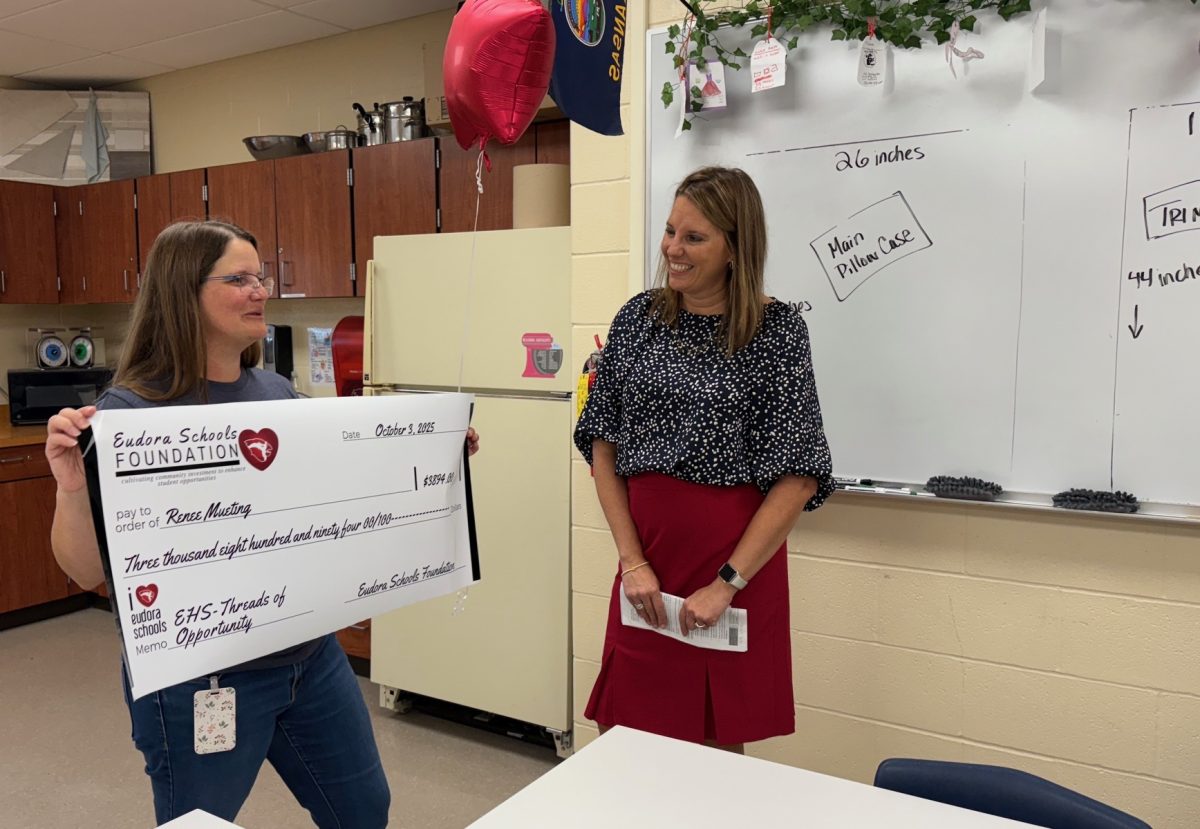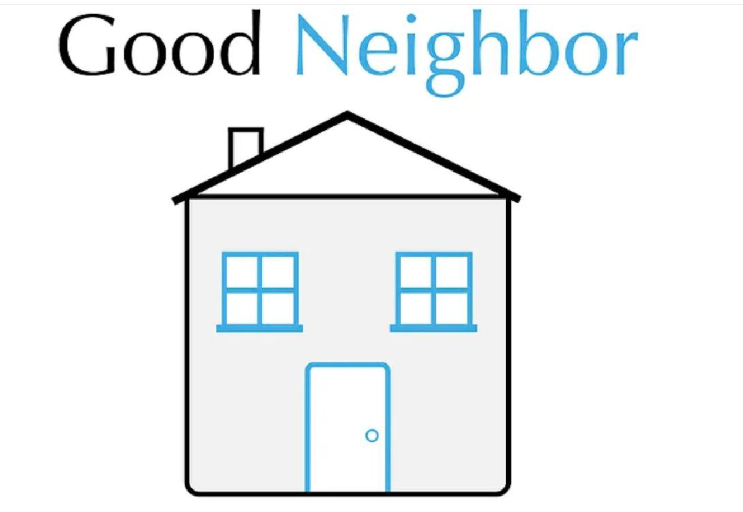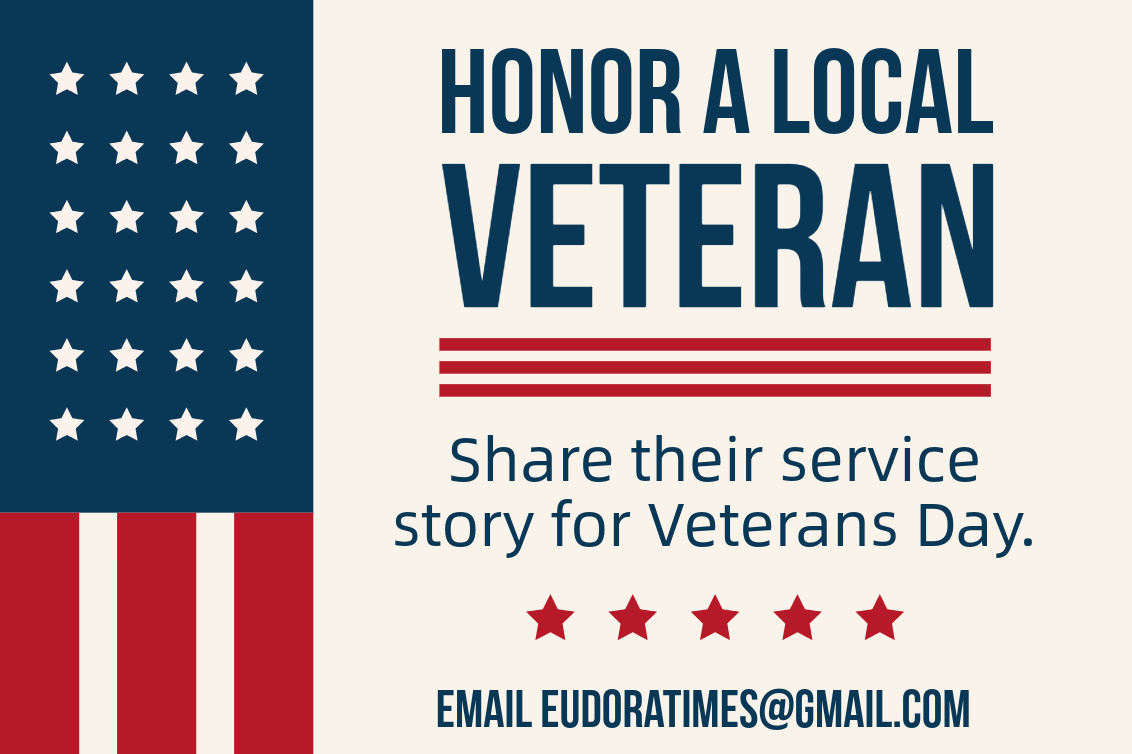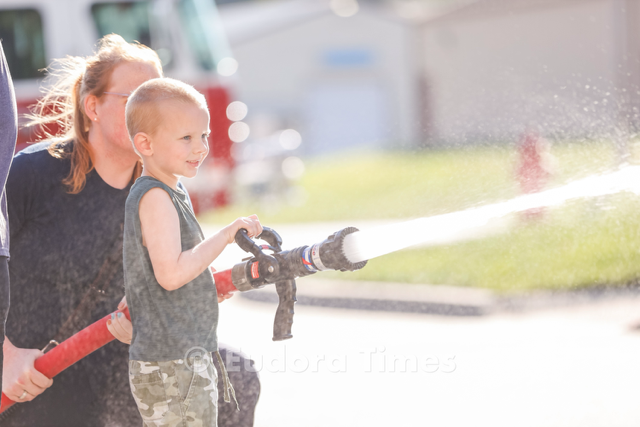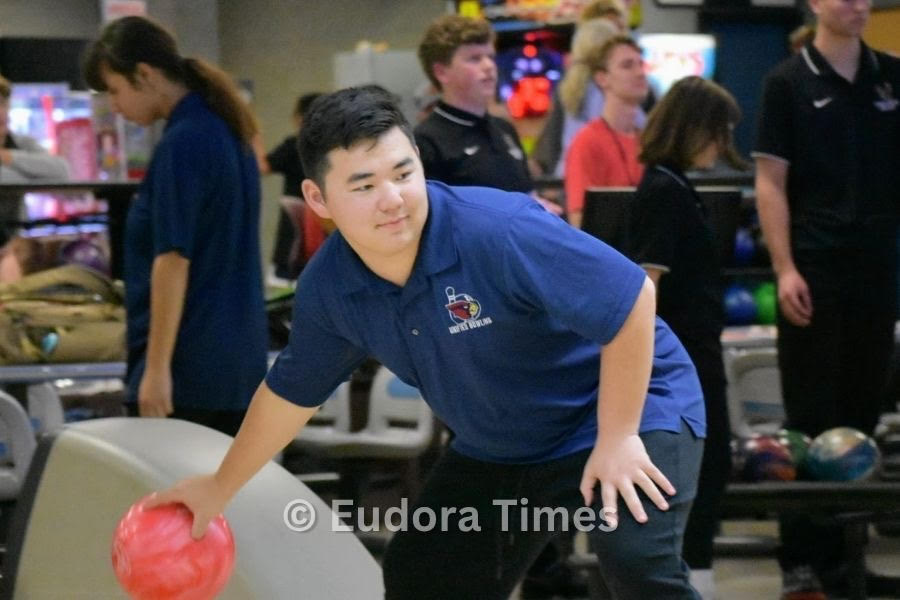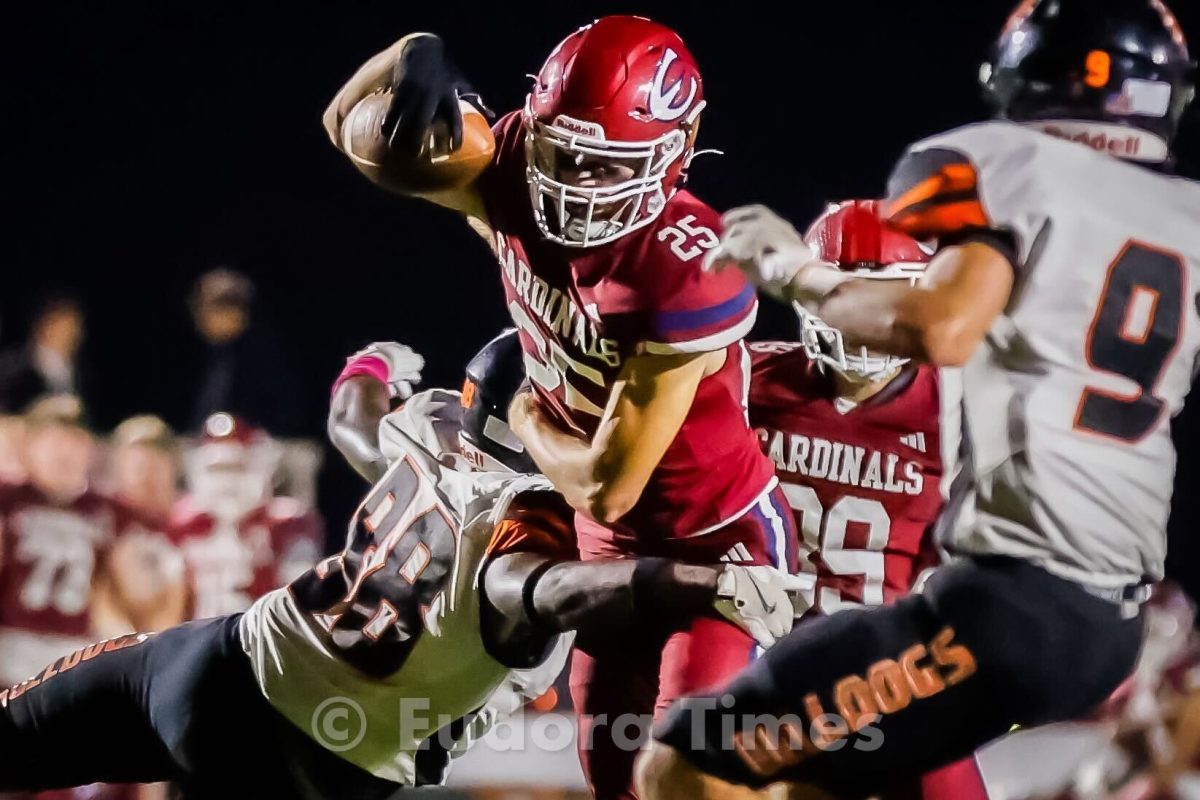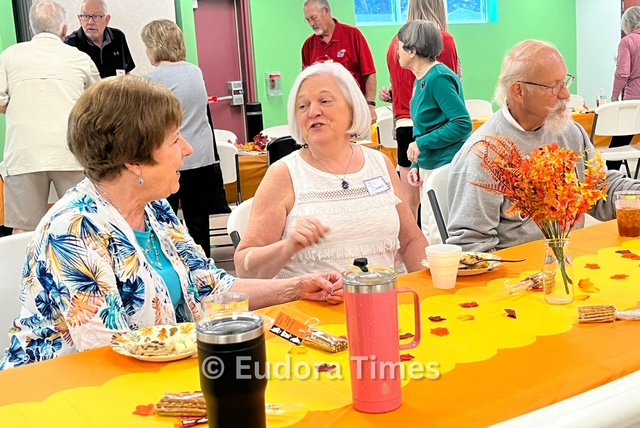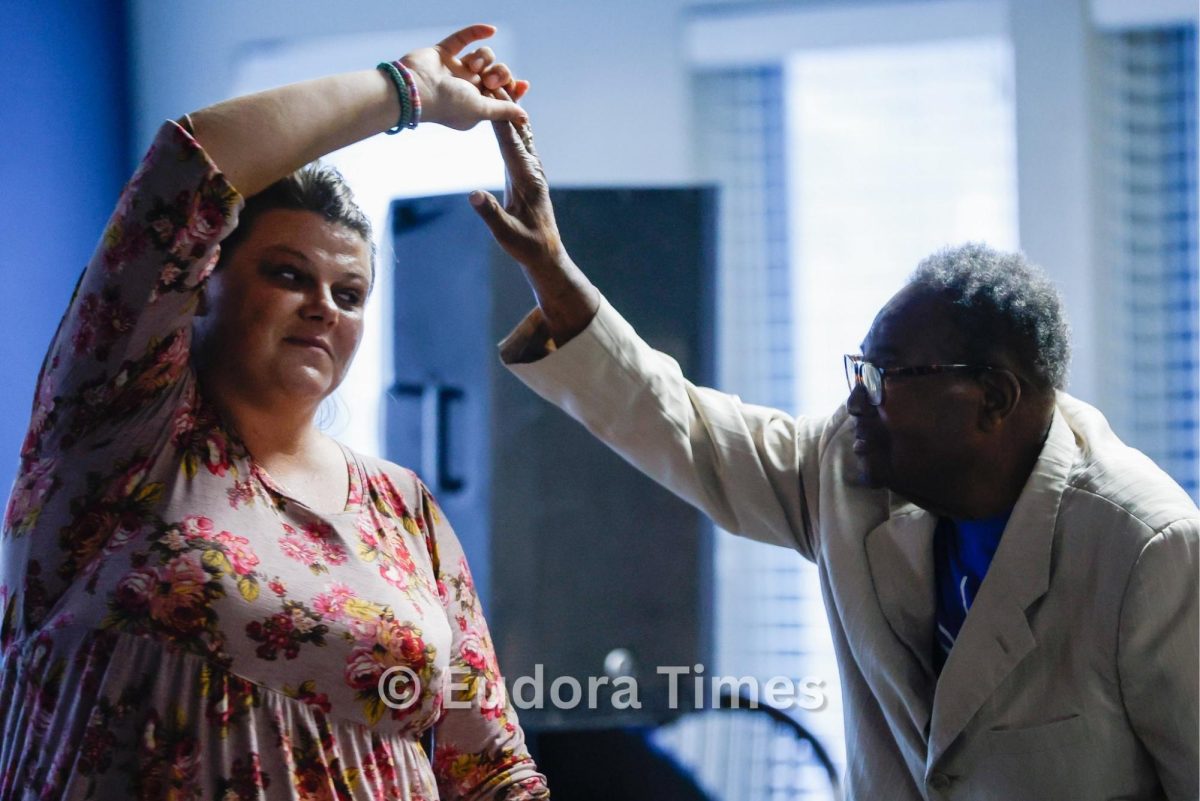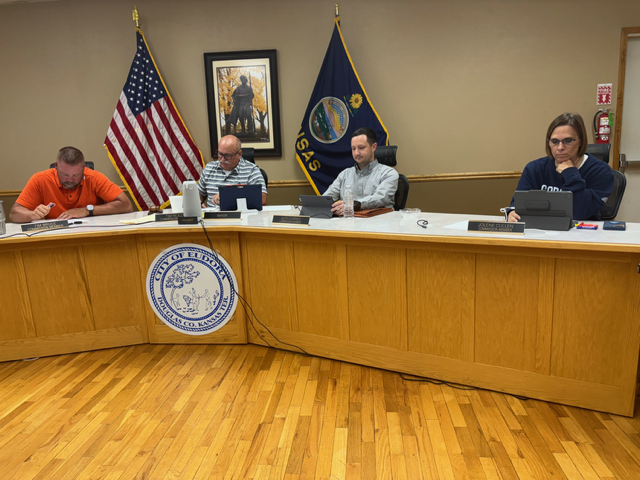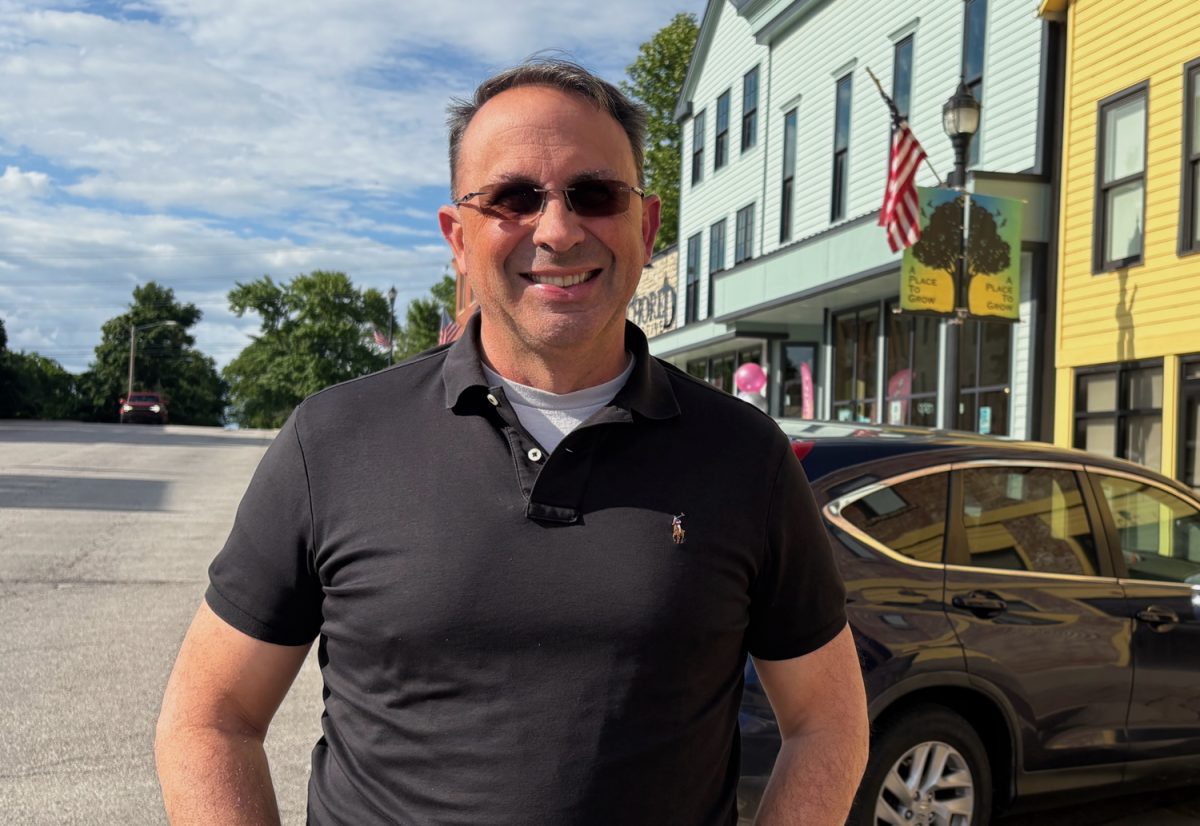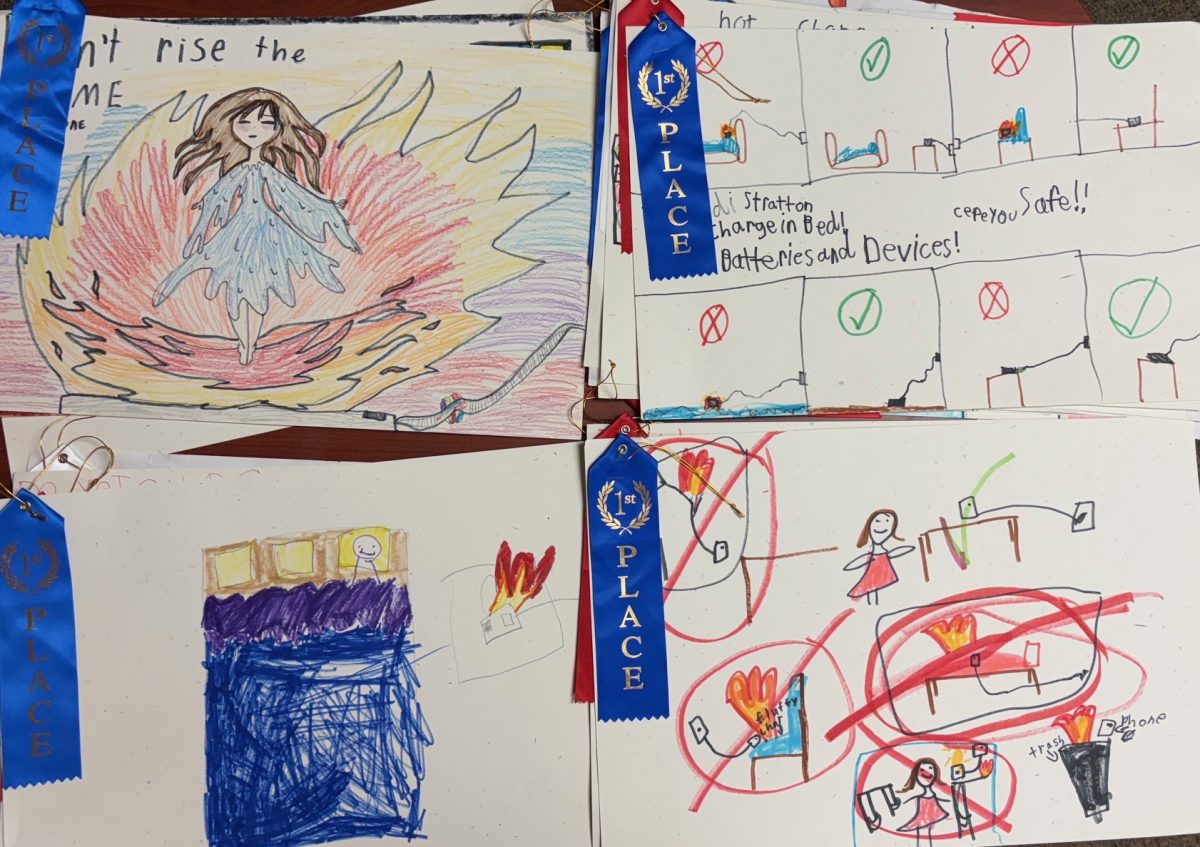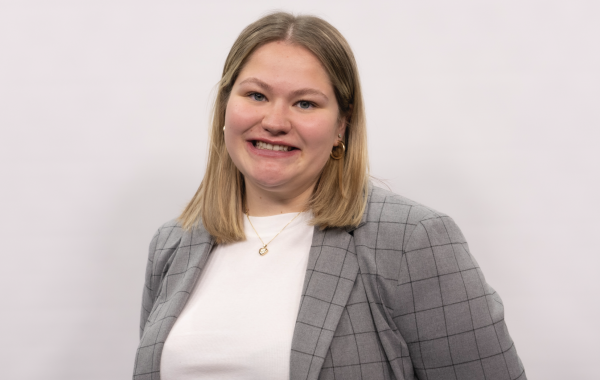This is the first story in a nine-part series featuring the candidates in the city and School Board races.
There will be two seats open for the November City Commission election, with four candidates running for the seats.
Early voting for the general election will begin in-person Oct. 15. Advance ballots will also be mailed Oct. 15. The last day to apply for an advance voting mail ballot is Oct. 28.
The county election office at 711 W. 23rd St in Lawrence will be open 8 a.m. to 5 p.m. Oct. 15 through Oct. 24, then 8 a.m. to 6 p.m. Oct. 27 through Oct. 31. From 9 a.m. to 1 p.m. Nov. 1, Eudora City Hall and the county election office will also be open for advanced voting. Nov 3 is the last day for advanced voting, which will be from 8 a.m. to noon at the election office.
Regular voting will be from 7 a.m. to 7 p.m. Nov. 4.
John Cullen
Current Job
Supply chain manager for Garmin
Community involvement
I moved to Eudora about four years ago when my wife and I got married. I’ve been involved with the kids’ school events mainly at this point.
Why are you running for this election?
I see in Eudora a lot of similarities with the town I grew up in in New Jersey as a kid, and I think that if we can figure out ways where the great organizations we have, like the CPA [Picnic] and Eudora Schools Foundation, School Board, Convention and Visitors Bureau, can work together, I think we can achieve some greater things that will help our city, but – at the same time – it’s maintaining that small-town feel.
What issues are most important to you?
I think one of the big ones that’s facing the city is the STAR bond district. I mean, it’s been talked about quite a bit that our city’s infrastructure is aging. Now we’ve talked about the need for a new water treatment facility, expanding where the electric comes from into the city, and we’re still maintaining the old systems, and we’ll have to plan the budget for the new facilities to come online. And that’s going to cost Eudora money, and a significant sum of money.
We talk about the tax rates and taxes going up now. It’s on Facebook. It’s on social media feeds, and it is a burden. I’ve seen our taxes go up on our house just in the time I’ve been in Eudora. The only way we can not have our taxes go up to pay for those things that we have to have is we need to find other sources of revenue from outside Eudora.
But, mainly, it’s going to be sales taxes. It’s going to be use taxes, things like that are coming in. And I understand that people are worried that we don’t want to lose our small-town charm. I mean, Eudora is small-town America. It’s one of the things I love about this town. It reminds me of home for me.
Vieste has been working for a couple years with Nottingham, and now this is developed plans, and it’s up to the commission and, you know, the city manager to ensure that they’re keeping in mind what we want for Eudora. We’re not going to become Olathe. We’re not going to become Lawrence. We don’t want to become that, but how do we bring in that outside revenue that can help us continue to improve the services that we provide for our fellow residents without having to tax our residents to the point that they can’t afford to live here anymore?
Panasonic is officially open. What steps do you think the city should be taking to continue to plan for growth surrounding that?
I think that’s kind of twofold. I think we have projects like Paschal’s Landing going on, which would be additional housing. I know they’ve already approved in earlier meetings the expansion of north of Shadow Ridge up behind the school and the STAR bond district would bring in additional apartment housing as well.
At the same time, that would bring in, you know, a hotel, which is going to be the closest hotel to Panasonic. De Soto doesn’t have hotels, so people are doing plant visits, which, you know, they have been, it gives them a place to come and stay. And, you know, we would have sit-down restaurants where Panasonic employees will come for lunch, the fast food restaurants, more than just what De Soto has to offer.
So, I think there’s a great opportunity there. We also have a distribution center that’s just, you know, a little bit closer to Eudora’s border. We have some great potential there for bringing money into our city. We just have to have a little strategic vision to put the pieces in place to capitalize on that.
There is a housing shortage in the county. How should the city continue to address this? Are you in favor of tax incentives for developers like the ones being used already?
So, I am, but I want to make sure that they are governed wisely. I mean, it’s easy to say, okay, and, you know, kind of waive everything to hurry up and get them to build. We want to work with those developers to get something that’s good for Eudora but not at the cost to everybody that currently lives here.
It has to be a balanced approach. I negotiate contracts on there, and developers can’t have everything that they asked for. At the same time, the city has needs and the city has requirements, and the developer has to be willing to meet us halfway. There’s a lot of developers out there that I think are willing to work with us, and we have to work with them to find that common middle ground and where everybody’s not perfectly happy, but we’re both very satisfied with what comes out of it.
How do you think the city should address concerns about property tax rates and the need to keep Eudora’s small-town feel?
That’s the give and take about it. We have needs that require payment. I mean, the two most important things the city does is provide for the safety and welfare of its citizens, and then to be good stewards of their money. But things like a new power substation, new water treatment plant and just taking care of the infrastructure we have now costs money, and that cost goes up every year. So, the only way we can not, you know, foot the bill ourselves, is going to be find those other sources of revenue, you know, mainly sales taxes.
What do you think are the city’s biggest infrastructure or improvement needs?
Primarily, the long-term needs are going to be making sure our water, sewer and electric can keep up with the demands, especially when we look at growing, whatever form that takes. After that, I mean, a lot of our streets still need help.
I look and I see neighborhoods that don’t have sidewalks, you know, kids have to walk to the bus stop, or they walk along the edge of the road on Main Street. Main Street doesn’t have sidewalks from north to south. So, I think, you know, bringing those sorts of things in that give it that walkable community. I want people to be able to walk down Main Street, walk to Nottingham if they want to, without having to walk in the street, you know, do some things like that.
The improvements are going along with the trails that they have planned in the Parks and Rec master plan, that would be great. It gives Eudora something to do, you know, because, hey, at the end of the day, we have a safe community, you know, one of the safest in Kansas, but okay, what do you do when you’re not at work? When you come home? What do you do on the weekends? And we have those things that give us a place to grow and relax, you know, together in a community, I think that definitely contributes to that small town America that we still desperately want to hold on to, and we should.
What departments within the city do you see as needing more support, funding or additional services?
I think we always have to look at our facilities. That comes first. That’s one of the things the city is mandated to provide. I think our police and fire department, I think our heads there, you know, [are] doing very well in creating a strategic plan. It just needs to be looked at, planned and budgeted for. And, you know, ask questions.
The commission always asks questions of those hired leaders within the city, as they should, because at the end of the day, the commission is the steward of those tax dollars. But we look at those essential services first, and then we start looking a little bit broader at Parks and Rec or some other strategic initiatives, but essential services always first and then improving the quality of life as we can, you know, and as we see fit.
When I say we, I mean the citizens of Eudora. It can’t just be, okay, hey, somebody sent us a master plan. Let’s go execute it. It’s like, okay, what do we want to see … yeah, it would be nice to have some trails that, you know, went through nature and stuff like that. It’s like, we have a plan for that. Okay, if that’s important to our citizens, let’s budget forward and make it happen.
What will you do to help spur additional development in the Nottingham development? What do you see as necessary steps?
I think the first thing we have to do is we have to sell what Eudora has to offer. And that’s our small-town charm. Something like a STAR bond, it can hopefully start bringing people to the city, you know. As we talk and continue along that process, developers looking at the city, businesses are looking at the city, and then we have to make sure we pick the right things. We want Nottingham to be kind of a center where people can come and it’s a walkable space. We have the farmers market there, those, you know, great activities that people love.
We have to show what we have to offer, and we have to get better, I think, at marketing Eudora outside of Eudora. There’s been mention of hiring, you know, possibly a city planner, to do those sorts of things. I think that will be one of their key responsibilities. Okay, we have a plan for this, and how do we bring that to fruition?
And a lot of that is who’s out there, you know, talking to businesses, talking to potential people to come to Eudora to help drive that tax revenue in. And how are they selling it? How are we selling Eudora? We have this great space in Nottingham, right there, off of K-10. You know, it’s like, how do we bring more people to it? And that’s – we have to provide more.
What are your views on the proposed STAR bond district to bring more sports/entertainment to town?
I think it’s vital to Eudora’s future. We need that additional revenue coming into town. The alternative is higher taxes, which nobody wants. So it’s, you know, bringing in the right types of businesses. I think the last plans I saw from Vieste involve a small convention center, extended-stay hotel where we could host those types of events in town, and then that mixed-use space, bring in sit-down dining.
So when people stop by Eudora they can, you know, hey, this is a great place there. Maybe someone will choose to move here, too. That would be great. But bring those other things, you know? I mean, Eudora has very limited family dining options, but it would be great to have a place to go, bring the family. And I think people come from De Soto and Lawrence, if we get the right types of restaurants and services in there.
With the senior community such an important part of Eudora, what do you see being needed to continue to support them service-wise?
I think the best thing we can do is partner with them to [determine], okay, what else can we do? I mean, they do a great job getting out in the community. And I think it’s a matter of, you know, encouraging and supporting their activities, promoting them. We have some great services, but I think, as with anything else, if we look at a broader picture, we can find ways to do better.
There has been conversation about needing a new City Hall building. Would that be a priority for you if elected?
I think, when we look at strategic plans, ensuring those essential services do come first. You know, it’s ones we know we have: sewer, electric, you know, water taken care of, we have the appropriate levels of funding for police and fire. Then we have to look strategically, okay, how long is City Hall going to last?
Right now, we have the City Hall, and then we have the annex buildings. So consolidating that would be a plus, first, for certain things. But is it, you know, do we need it next year? Probably not. But do we need it maybe, you know, 5,10 years down the road? Very likely, and that’s where I think we have to look strategically at all of these decisions, because they all have to be funded, but they all can’t be funded right now. And, you know, what is Eudora’s five-year plan, 10-year plan, and that’s where that, you know, their strategic planning documents come into play.
Overall, what is your vision for Eudora’s future?
So, my vision for Eudora’s future is we have a community that still has a small-town feel, that everybody in town still goes to the football games on a Friday night, and then we have things to do after that football game’s over. We have places to go that, you know, not only support Eudora but bring in those people from outside Eudora to help diversify our tax base.
I mean, you know, if everybody has a place to go after the game and talk about games gone past, or how great a night that was, that would be a great thing. So, a broadened tax base that allows us to continue to provide all those things that a city government is supposed to provide, and that will allow us to keep that and we have to make sure that when we’re making those plans, those plans start with that end goal in mind.
So, you know, we can bring those extra tax dollars that’ll support jobs in Eudora, which will bring people to Eudora. If we grow sustainably and if we grow responsibly, I think we can have both things: that diversified tax base that brings in that external revenue, and still have that small-town feel. Other towns can do it, and I believe we, you know, when we bring all of our resources together for that common goal, can do the same thing,
Anything you want to add?
So, I hear a lot about transparency and, in a lot of ways, I don’t think Eudora has a transparency problem. I think Eudora has a communication problem. So the city, you know, Parks and Rec, all these documents I’m talking about, they’re all out there. You know, anybody can go find them, but we can do a better job at communicating that to our citizens. Our citizens deserve to know what the city is doing for them.
They have entrusted that this is a safe place for me to raise my family and, in exchange for my tax dollars, there’s going to be required essential services, auxiliary services provided. And they’ve given the city that sacred trust, and in return, the city is bound, in my opinion, to tell them, “Here is what we’re doing to fulfill that trust you’ve given us.”
So, I think that would be a priority to help level that. When people say transparency, it’s never in a good light. And the elected and the paid employees in the city, they work hard every day to give us exactly what we ask of them. And I think we can do a better job of the city communicating that to its citizens, and that, you know, opens up those lines of communication more.
So, I think one of the first things I’d like to do is explore ways that we can increase that communication, because with increased communication comes increased trust. We may not all agree on everything. But if everybody understands what’s going on, why decisions are made, how they’re made, one, they feel involved in the process, they feel their voice is being heard. And even if they don’t agree 100% of the time, they can still trust the process, and trusting the process is key to any government body functioning well.
